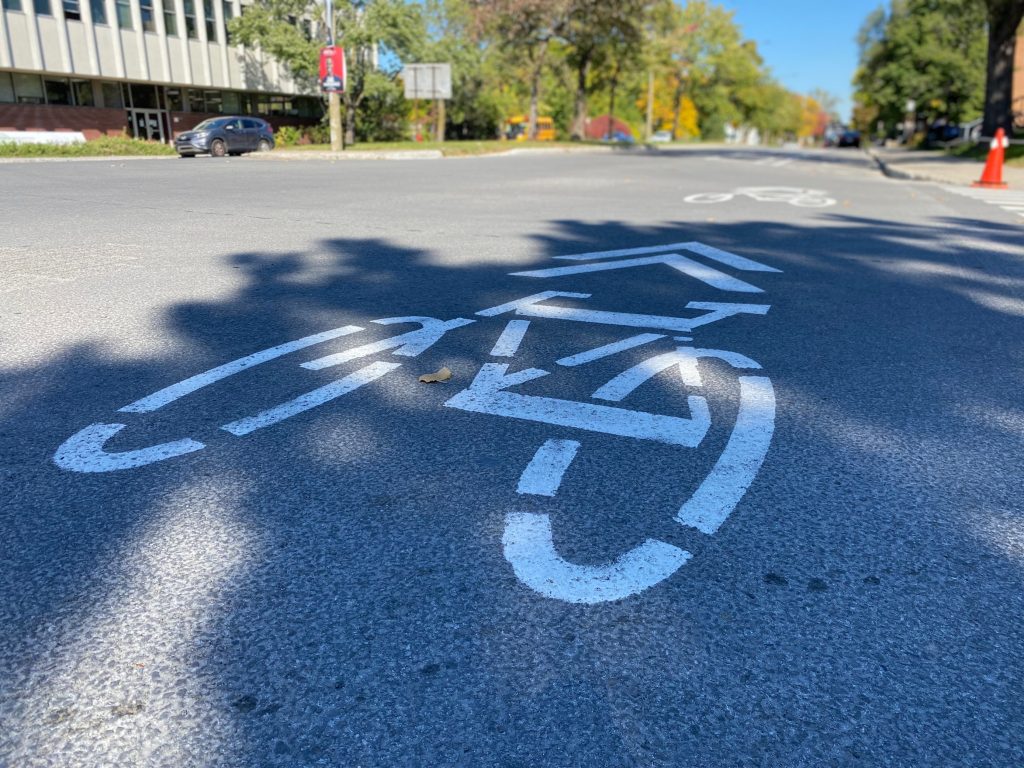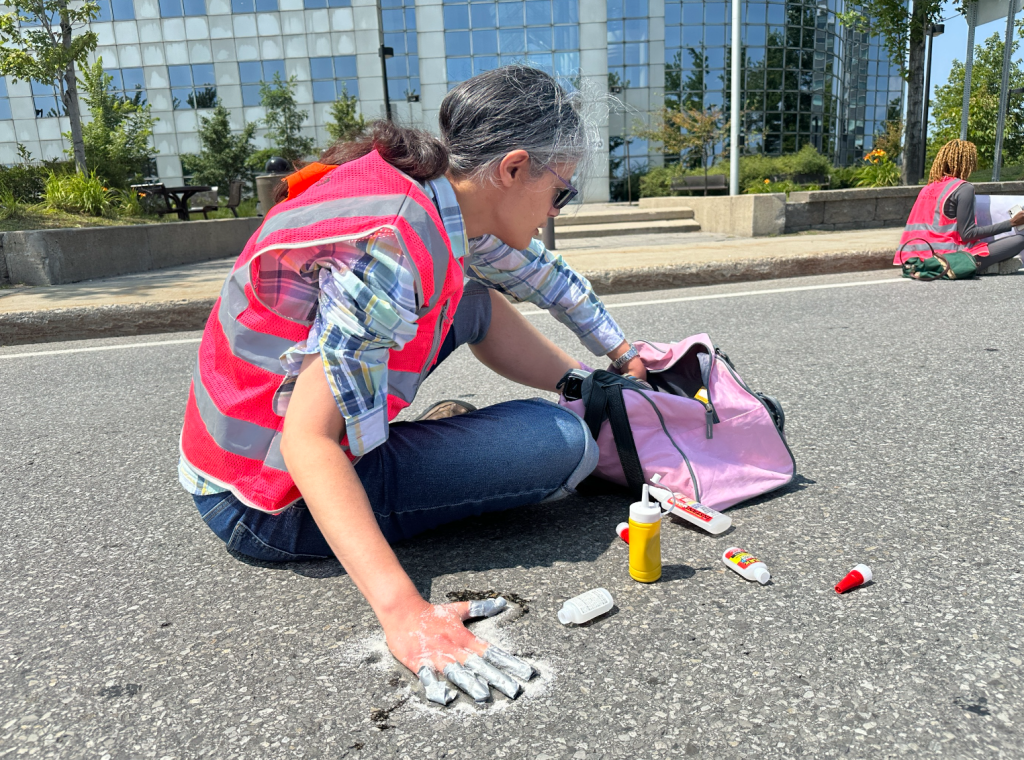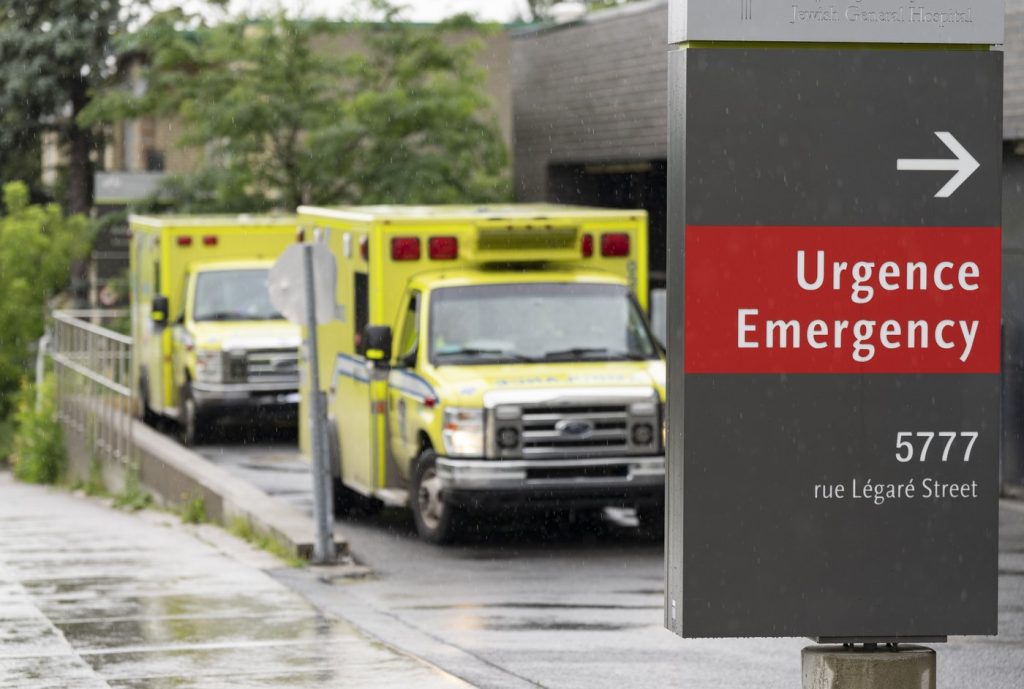‘Systemic change in society’ needed to end violence against women: advocate
Posted November 26, 2022 1:51 pm.
Last Updated November 26, 2022 6:20 pm.
Ending violence against women and gender discrimination are the focus of an annual campaign in Quebec that kicked off Friday.
The “12 Days of Action to End Violence against Women” leads up to Dec. 6 – the anniversary of the École Polytechnique massacre, when a gunman killed 14 women in a mass shooting in Montreal in 1989.
This year the organizers at the Fédération des femmes du Québec (FFQ) are focused on uprooting violence by highlighting gender discrimination that they say is often dismissed day to day.
“We need as a society to be able to give the space for everyone to feel safe in their work environment, in their school environment, in their love life,” said project coordinator Taïna Mueth. “It’s not just a matter of having equality on a certain level, as we have to feel safe wherever we are.”
The “12 Days” committee brings together nearly 20 organizations. This year’s theme looks at day-to-day gender violence.
“There’s some narratives that are so ingrained into society,” said Mueth. “That a woman is wearing a short skirt so she wants attention from men – a narrative that allows us to enforce violence upon women.”
READ MORE:
- ‘Fear Windows’ campaign to raise awareness for intimate partner violence
- Montrealers march for victims of domestic violence, femicides
- Charity helping women flee violence awarded YMCA Peace Medal
- City of Montreal allocates record $30 million for violence prevention
Mueth says in order to create meaningful change, it must come from society as a whole.
“Violence towards women, it’s often seen as an individual problem,” she said. “It’s the woman and the aggressor. But we don’t see it as a collectivist problem, as a problem that is rooted in society, that is rooted in systems.
“And if we don’t see this as something that we – every one of us – needs to change, there cannot be real, systematic change in society.”
The annual campaign is now in its 11th year.
“2021 was one of the deadliest years for women in Quebec,” said Mueth. “And some people think that we’re ahead with that kind of social issues, but no, we’re still way behind because we don’t want to open our eyes and look at this problem in society.”
According to Statistics Canada, nearly 80 per cent of victims of intimate partner violence last year were women and girls. And the rate of victimization was nearly four times higher among women and girls than in men.
Quebec was among four provinces that saw the largest increase in intimate partner violence against women and girls – an increase of 28 per cent.
“Not everyone is born as a woman, but a lot of people die because they are a woman,” said Mueth.
“It’s not because you don’t do physical violence or conjugal violence that you are not part of the problem. You can take part of this bigger problem at the micro-level.”
RELATED:
- SPVM unveils new unit specialized for complex complaints of intimate partner violence
- Intimate partner violence rose during pandemic with no sign of slowing: study
Mueth says everyone has a part to play, day to day, in helping the larger problem.
“This campaign has been here for 11 years, and we still need to do it again and again every year,” she said. “It symbolizes the fact that the problem is not concluded, and we still need to fight it.”



